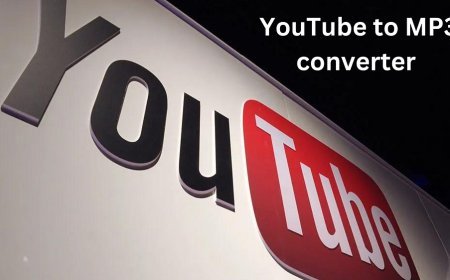The Power of Book Marketing: Unlocking Success for Authors and Publishers

Introduction: Why Book Marketing Matters
In the competitive world of publishing, book marketing has become the cornerstone of success for authors and publishers alike. Writing a compelling book is only the first step; ensuring it reaches the right audience requires a strategic approach. Effective book marketing not only increases visibility but also drives sales, enhances author credibility, and fosters lasting connections with readers. This article dives into the strategies, tools, and techniques that make book marketing an essential part of any publishing journey.
Understanding the Core Elements of Book Marketing
1. Identifying Your Target Audience
The foundation of any successful book marketing campaign is understanding who your readers are. Knowing their demographics, interests, and reading habits allows you to tailor your approach for maximum impact.
- Demographics: Age, gender, location, and profession are critical data points.
- Reading Preferences: Identify genres, themes, or topics that resonate with your audience.
- Where They Spend Time: Social media platforms, forums, and bookstores are key to finding your readers.
2. Crafting a Compelling Author Brand
Your brand as an author is just as important as your book. A well-defined author persona builds trust and fosters reader loyalty.
- Professional Website: A central hub showcasing your books, biography, and blog.
- Consistent Social Media Presence: Engage with followers and participate in relevant discussions.
- Author Bio: Create a concise, engaging narrative that highlights your expertise and unique voice.
Strategies for Effective Book Marketing
1. Harnessing the Power of Social Media
Social media platforms offer unparalleled opportunities to connect with readers and promote your book.
- Facebook and Instagram: Ideal for visual storytelling, teasers, and behind-the-scenes content.
- Twitter: Best for joining conversations, using hashtags, and sharing updates.
- TikTok (BookTok): Leverage trends and create short, engaging videos to appeal to younger audiences.
2. Leveraging Email Marketing
Email marketing is a direct and cost-effective way to communicate with your audience.
- Build an Email List: Use a lead magnet, such as a free chapter or eBook, to attract subscribers.
- Personalized Campaigns: Send tailored messages to different segments of your audience.
- Regular Newsletters: Share updates, promotions, and insights to keep readers engaged.
3. Collaborating with Influencers and Bloggers
Influencer marketing is an effective way to amplify your book’s reach.
- Book Reviewers: Reach out to bloggers who specialize in your genre for honest reviews.
- Social Media Influencers: Partner with influencers who have a strong following in the literary community.
- Cross-Promotions: Collaborate with other authors to share audiences and boost visibility.
Maximizing Online and Offline Visibility
1. Optimizing for Search Engines (SEO)
SEO ensures your book is discoverable online.
- Keyword Research: Identify high-ranking keywords related to your book’s theme or genre.
- Metadata Optimization: Optimize your book’s title, subtitle, and description with relevant keywords.
- Content Marketing: Write blog posts, and guest articles, or create videos that highlight aspects of your book.
2. Hosting Virtual and In-Person Events
Engaging with readers through events creates lasting connections and promotes your book.
- Virtual Events: Host webinars, live readings, or Q&A sessions on platforms like Zoom or YouTube.
- Book Signings: Arrange signings at local bookstores or literary events.
- Workshops and Panels: Share your expertise at industry conferences or community gatherings.
The Role of Paid Advertising in Book Marketing
Paid advertising can provide a significant boost to your marketing efforts when used strategically.
- Amazon Ads: Target readers searching for books in your genre.
- Google Ads: Use keyword-based ads to direct traffic to your book’s landing page.
- Social Media Ads: Run highly targeted campaigns on platforms like Facebook, Instagram, and LinkedIn.
The Importance of Reviews and Testimonials
Positive reviews and testimonials can make or break a book’s success.
- Encourage Reader Reviews: Politely request reviews from your readers after they’ve finished the book.
- Leverage Advanced Review Copies (ARCs): Send free copies to influencers, bloggers, and journalists for early reviews.
- Highlight Testimonials: Display glowing reviews on your website, social media, and book cover.
Measuring Success: Analyzing and Adjusting Your Strategy
Monitoring your marketing efforts is essential to ensure success and refine your approach.
- Track Metrics: Use analytics tools to measure website traffic, email open rates, and ad performance.
- Gather Feedback: Listen to reader and reviewer feedback to improve your marketing strategy.
- Adapt to Trends: Stay updated on the latest industry trends and adjust your campaigns accordingly.
Conclusion: Unlock Your Book’s Full Potential
Effective book marketing is a multifaceted process that combines creativity, strategy, and persistence. By understanding your audience, building a strong author brand, and leveraging the right tools and platforms, you can ensure your book reaches its full potential. Remember, success doesn’t happen overnight, but with consistent effort and smart strategies, you can unlock new growth opportunities.
What's Your Reaction?






























































